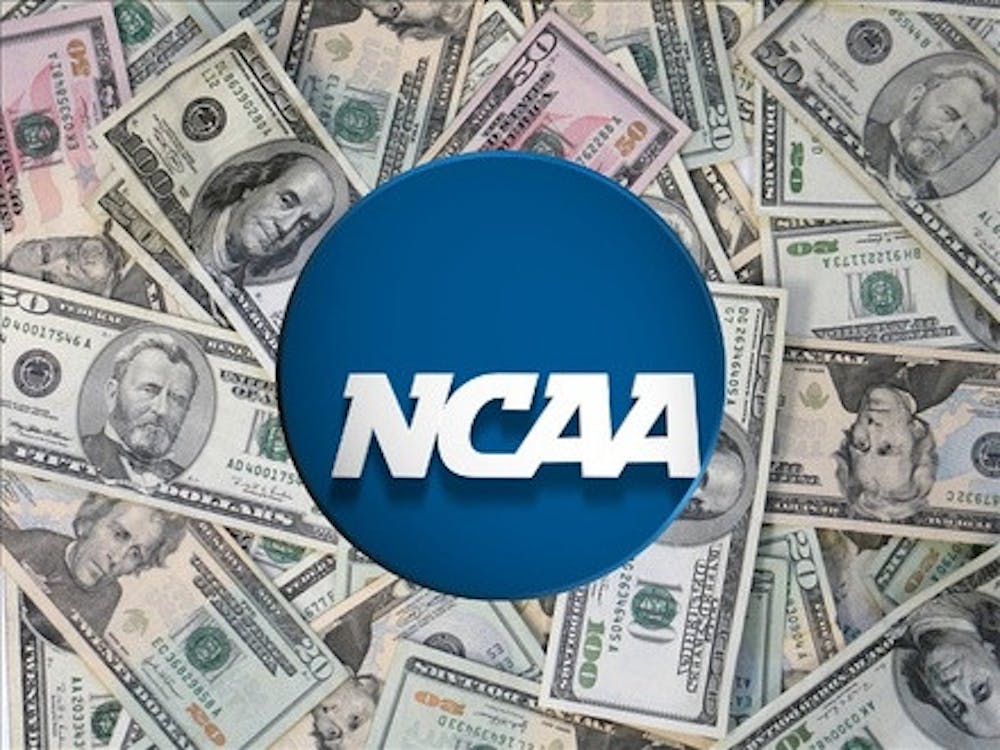
It is no walk in the park trying to get by financially as a college student.
I should know – I am one.
College is a constant struggle when it comes to money. There is tuition, debt, books, essential supplies and, oh yeah, food. Sometimes an $11 movie ticket is just not reasonable.
Most colleges, like Seton Hall, place fees on all kinds of things to help lighten the load of your wallet. Parking permits and laundry are the first two that come to mind.
Fortunately, I am lucky enough to have the time and opportunity to work paid gigs for two organizations. The money I earn, along with help from my family, helps me skate by.
However, most student-athletes do not have the time to make money in addition to a grueling schedule, which is why the Hall’s decision to award men’s and women’s basketball players $2,600 in stipends – officially and in accordance with NCAA regulations, of course – should be perceived as nothing but good news. These players deserve it.
Some will disagree – most of these guys and gals are on full-ride scholarships because they play a game after all – but these basketball players and other athletes put more time into practice than you do into class and studying… and then they go to class… and then they go study.
Yeah, there are some perks to being a Division I athlete, but schools like Seton Hall and other collegiate institutions combined to make the NCAA $989 million in revenue in the 2014 fiscal year, which is why I say give these players more than a few stipend checks.
When I say "more," let me clarify:
The stipends for basketball players are nice, but it is not feasible to hand every athlete in every sport at every school a check.
The basketball players are getting money because at Seton Hall, they generate the most of it, which in turn is then put back into other teams and programs. Cross country and women’s soccer, among other sports, do not bring in much money.
So my proposition is this: Instead of giving all of these athletes more money, give them freedom.
Seriously, just a tiny bit of it.
The NCAA, the greedy control-freaks that they are, have long made examples out of anyone who accepts money for any kind of good or service.
Have a game worn jersey you want to sell?
Suspension.
Want to trade some smelly old shoes for a few meals?
Suspension.
Someone wants to give you $100 for your signature?
Suspension.
Are you being offered a rent-free place to live by a good samaritan because you cannot afford a place yourself?
Yep, you guessed it! Suspension.
It is criminal how insistent the NCAA is on limiting the rights of its athletes. Someone could give me $100 for my autograph as I walk down South Orange Avenue and there would be no issue if I took it. Really, what is a quick scribble of my name for 100 bucks other than honest, easy money making?
Isaiah Whitehead could not do that though, and only because he plays basketball.
Look, not every athlete is going to be able to cop some cash for their game-worn apparel or autograph – no one is coming to the last man on the swimming and diving team with money for those things – but unfortunately, life is naturally unfair. Some athletes are just more popular, more marketable and in more demand in a capitalistic economy than others.
My thought is that those athletes should have the opportunity to go find out about that natural unfairness themselves instead of having the fat cat NCAA higher-ups unjustly denying the ones who actually can do something to make getting by a little bit easier.
It is already hard enough.
Gary Phillips is a junior journalism student from Ramsey, N.J. He can reached at gary.phillips@student.shu.edu and on Twitter @GPhillips2727.




